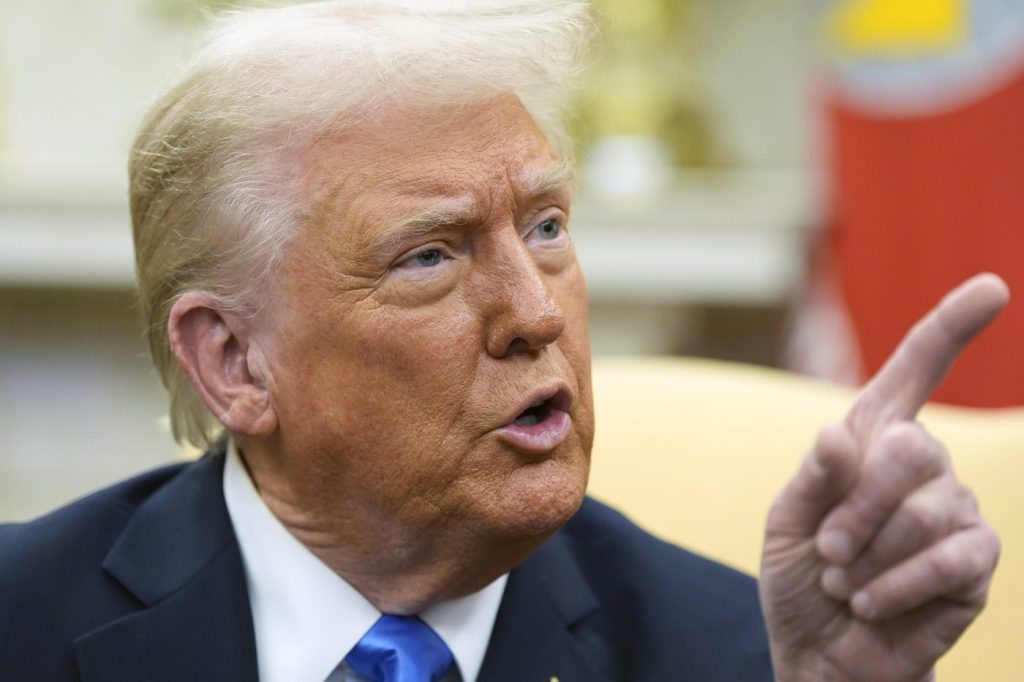LOS ANGELES (AP) – President Donald Trump’s intention to advance artificial intelligence (AI) research in the United States has come under scrutiny due to his concurrent threats to modify federal contracts with semiconductor manufacturers and impose new tariffs on the chip industry. Since his administration began, Trump has expressed a willingness to impose tariffs on foreign-produced computer chips and semiconductors, aiming to revive domestic manufacturing.
Compounding the issue, Trump and fellow Republican lawmakers have indicated a desire to dismantle the CHIPS and Science Act, a significant piece of legislation from the Biden administration designed to enhance domestic production of chips and address supply chain vulnerabilities. This dual approach has raised concerns among economic experts, who argue that it could derail efforts for the U.S. to maintain its competitive edge in AI research.
According to Saikat Chaudhuri, a corporate growth and innovation expert at the University of California, Berkeley's Haas School of Business, Trump’s disparagement of the CHIPS Act is particularly surprising given that a major obstacle to advancing AI technology has been the production of chips. Most nations are striving to incentivize chip production and importation at beneficial rates.
Chaudhuri highlighted the far-reaching impacts of the chip shortage that emerged during the COVID-19 pandemic, affecting a wide array of industries from automotive to electronics. Lawmakers had initially pushed for the CHIPS Act following significant supply disruptions that threatened to trigger a recession. The shortage emphasized the importance of retaining control over advanced chip production, especially in light of geopolitical fears related to China’s influence over Taiwan, which produces more than 90% of advanced computer chips.
By August 2024, the CHIPS and Science Act had allocated $30 billion to support 23 projects across 15 states, expected to create 115,000 manufacturing and construction jobs. This legislative initiative was designed to attract private investment and boost U.S. capabilities to produce 30% of the world’s advanced chips—a significant increase from 0% at the beginning of the Biden-Harris administration.
The Biden administration has committed tens of billions of dollars to support U.S. chip foundries, aiming to reduce dependence on Asian suppliers perceived as a security risk. In August, the Commerce Department announced a pledge of up to $6.6 billion for Taiwan Semiconductor Manufacturing Company (TSMC) to expand its facilities in Arizona, which is viewed as a crucial step toward domestic production of advanced microchips.
Despite the progress facilitated by the CHIPS Act, Trump has stated that companies like TSMC shouldn't require government assistance to prioritize chipmaking in the U.S. He suggested that the motivation for these companies to invest domestically should stem from incentives related to tax burdens rather than direct government support.
Recent meetings held by TSMC in the U.S. involved discussions on avoiding the 100% tariffs Trump has threatened to impose on imports of chips. Chaudhuri pointed out that implementing such tariffs would lead to increased prices for a variety of consumer technologies that rely on semiconductors, including smartphones, gaming devices, and automobiles. He warned that manufacturers would likely pass these additional costs onto consumers, creating financial strain.
Experts like Brett House from Columbia Business School argue that tariffs could severely hinder the U.S. economy by increasing operational costs for companies that rely on imported high-powered chips, a necessity for the AI sector. They contend that the simultaneous threats to the CHIPS Act and the imposition of tariffs would critically damage the industry’s prospects for growth and development in the U.S., sending a negative signal to investors.
House emphasized that historical success in American technological leadership has been linked to maintaining open markets and fostering global collaboration. Clamping down on these avenues is unlikely to promote success for the U.S. tech industry in an increasingly competitive global landscape.










